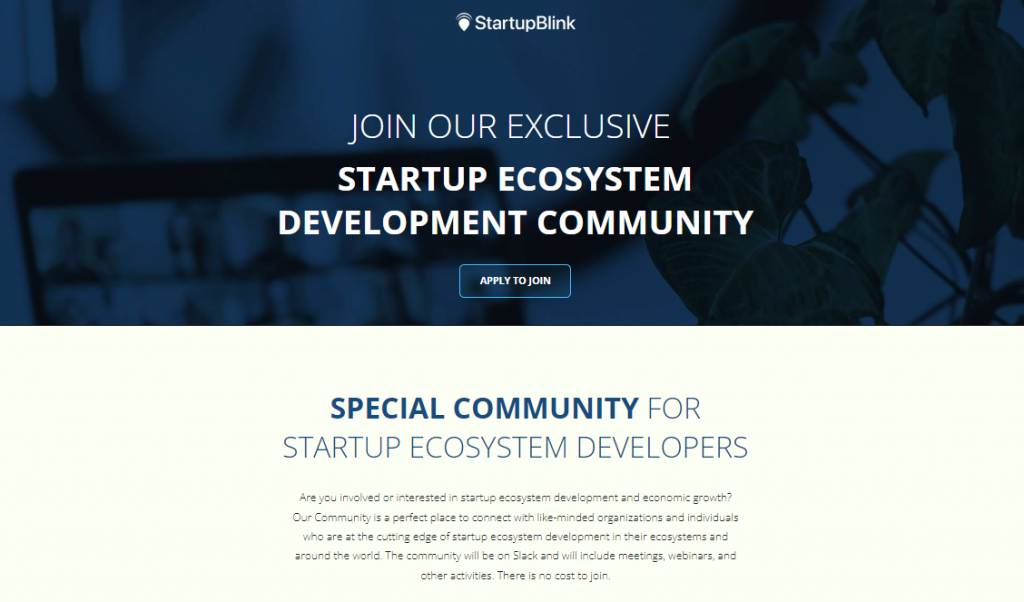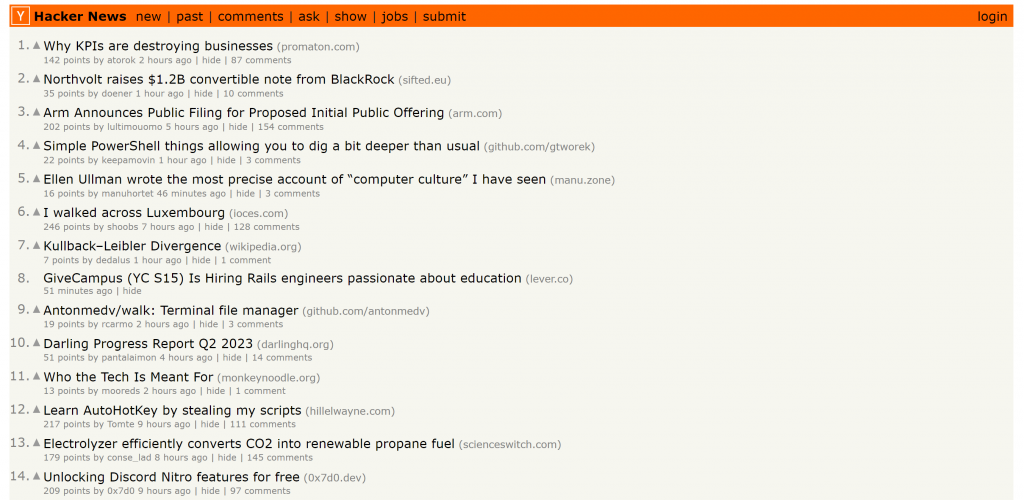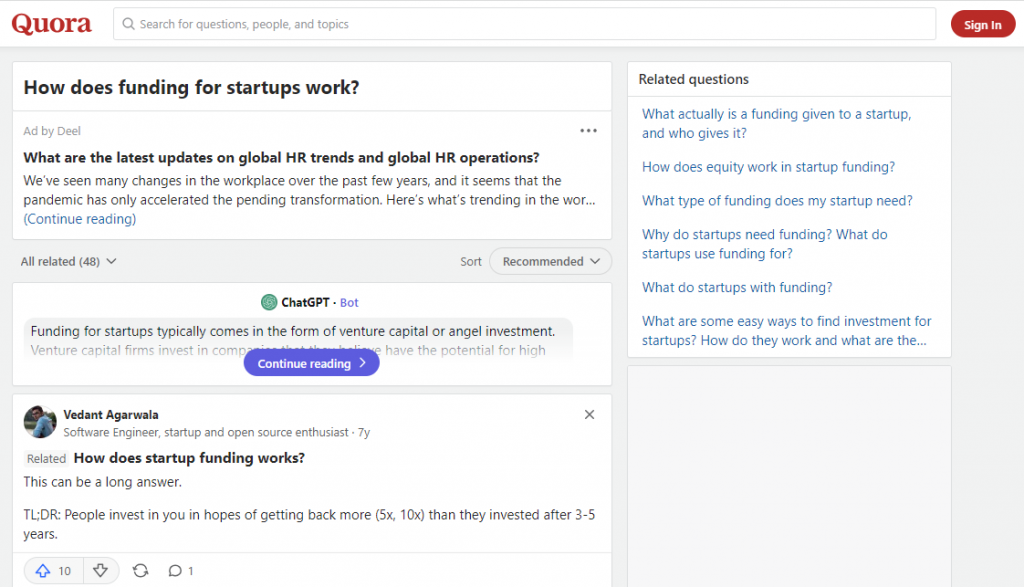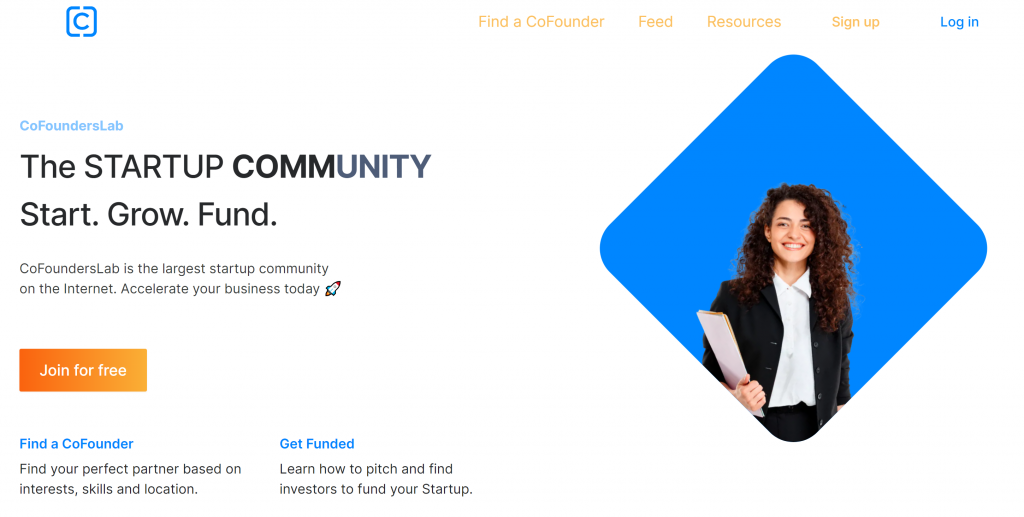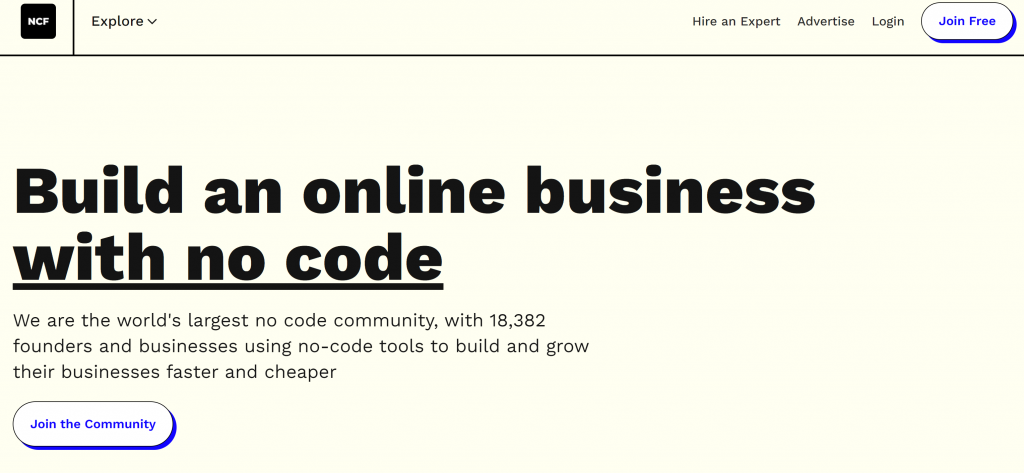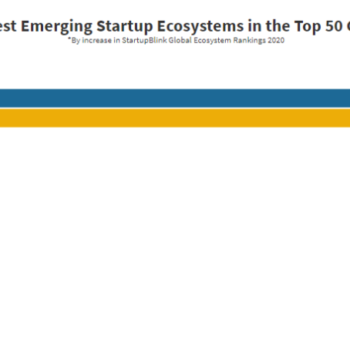Founding a startup can be a lonely journey. Sure, you may have a team and your own small support group of family and friends, but what about the time when you puzzle over questions related to funding, growth, marketing and hiring? Luckily, as in the case of many modern problems, the internet comes to the rescue with various online startup communities. And now, these groups are not just for startups themselves. They include all the different people and organizations that help startups, like StartupBlink’s Startup Ecosystem Development Community.
Online startup communities that provide answers to specific startup questions are abundant on the internet. These communities not only address your inquiries but also facilitate networking and provide social stimulation for interaction. Whether your concerns range from the mundane to the most intricate startup challenges, you can find a community discussion dedicated to it.
We introduce to you the best online startup communities where you can engage and deliberate on your most pressing startup challenges while also receiving valuable feedback:
1. Facebook Startup Communities
The world’s largest social networking site boasts of a number of online startup communities. You can filter groups according to industry and location. Remember, some of the best groups are closed and only allow certain members to join. Such groups are better curated and allow for better discussion and block spam. If you want to interact with a close circle of entrepreneurs, choose the right Facebook Groups and you’re good to go. Some of the groups worth checking out include:
Best For: There are hundreds of groups for different needs and specializations
2. Slack Startup Communities

Although built as a real time messaging app for teams, Slack is fast gaining momentum as a great place for startup founders to hang out. Slack channels such as #startup by Startup Foundation, Online Geniuses and Founded X have a large network of entrepreneurs and founders that you can share startup notes with.
StartupBlink has launched the StartupBlink Startup Ecosystem Development Community. This community stands as a unique initiative, distinct from the usual startup-centered ones, as it unites developers of startup ecosystems worldwide. Whether you represent a private or public sector organization like an accelerator, startup organization or innovation hub engaged in the advancement of startup ecosystems, this community is tailor-made for you.
Upon becoming a member of this community, you gain access to exclusive online events, networking opportunities with potential partners, and the chance to participate in insightful discussions about the development of startup ecosystems.
Best For: Startups, Startup Ecosystem Developers & Startup Ecosystem Enthusiasts
3. GrowthHackers
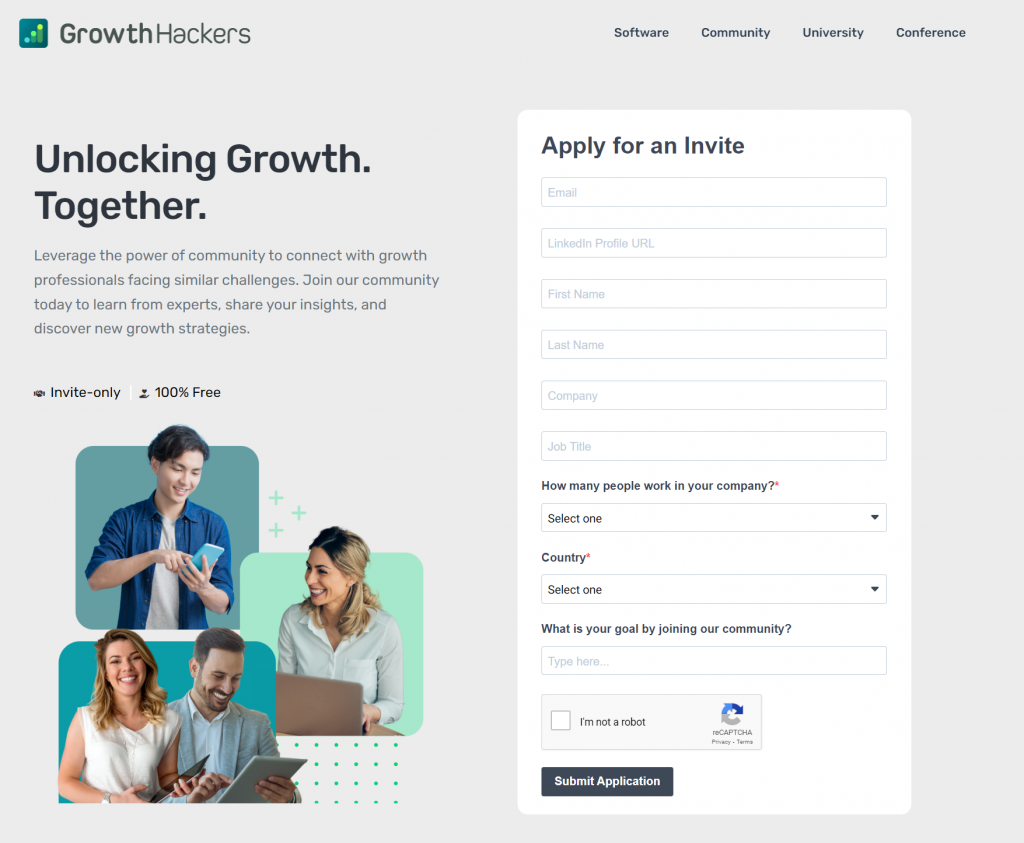
As the name suggests, GrowthHackers is an online startup community for all things startup growth. This includes all aspects such as social media marketing, blog, sales, ecommerce, etc. Members in the community can post anything as long as it satisfies the caveat of “making the community better”. You can also ask the community questions about the description of growth hacking and emerging and declining growth channels. If you’re looking to study growth studies of successes such as Etsy, Slack and Spotify, GrowthHackers has them documented.
Best For: Founders looking for strategies and techniques related to startup growth
4. Indie Hackers

The Indie Hackers is a community stands as a haven for entrepreneurs, inviting both accomplished founders and emerging “Indiehackers” to share their journeys and wisdom. This platform serves as a valuable resource for those who seek insights into successful business and side project ventures.
By fostering an atmosphere of transparency, Indie Hackers encourages open conversations about the nuances of establishing and expanding online enterprises, all while maintaining independence.
Beyond stories and experiences, Indie Hackers provides a space for the exchange of feedback, mutual support, and collaborative learning among individual indie hackers, contributing to a dynamic ecosystem of shared knowledge and growth.
Best For: Indie Hackers, Aspiring Entrepreneurs, Founders
5. Reddit
You may know Reddit as the front page of the internet, but it is an incredibly useful online startup community when it comes to startups too. Whether you’re looking to garner honest feedback on your latest app or learn from other entrepreneurs’ experiences, Reddit has a place for it all. Subreddits such as Side Projects and Startup allow you to showcase your startup to the community.
If you’re already running a small business, consider checking out Small Business and Entrepreneur for solutions to problems you might face. For startup information specific to your location, there are subreddits for different cities and countries such as London and Toronto.
Finally, remember that Reddit has a strong aversion to spam, so if you’re here merely for self-promotion, it won’t help. On the other hand, its no-spam policy also makes it one of the few communities where you can expect to read thoughtful, quality posts without having to plough through a lot of meaningless links.
Best For: Founders, Entrepreneurs & Innovators
6. Hacker News
Started by Y-Combinator, Hacker News is a place to discuss startups and technology. While similar to Reddit, it is much more focused and geared towards startups that are well invested in and present in Silicon Valley. Making it to the front page of Hacker News is considered a big deal, owing to its strict community guidelines and focus on quality posts. You can quiz fellow community members about anything startup related on the Ask tab, while receiving feedback on the Show tab.
Best For: Tech Startups, Tech Enthusiasts, Investors
7. LinkedIn Startup Communities

While not specifically built for startup interactions, online startup communities on LinkedIn can provide you with much needed proximity to entrepreneurs online and offline. The groups can be closed as well as open, but again the former are better curated than the latter. Try to join groups that have strict posting guidelines, so as not to be flooded with spam, but meaningful discussions. Some of the groups we found especially interesting include Startup Specialists, On Startups and Cloud & SaaS Startups on LinkedIn.
Best For: There are hundreds of groups for different needs and specializations
8. Quora
Quora is the place to ask questions about anything under the sun; from climate change and nuclear physics, to sitcoms and books. But apart from being a general Q&A site, Quora is also a great place to seek startup advice and learn from the pros.
Owing to its high emphasis on quality, you can expect to receive actionable and often reliable advice. What’s more, you can also reach out to VCs and seasoned entrepreneurs with questions related to startups.
Some of the best bloggers and influencers frequently answer questions on Quora and dole out startup advice. Apart from receiving startup advice, you can also build your personal brand on Quora, by writing high quality answers. Top writers on Quora can build a loyal following for themselves and their startup.
Best For: Entrepreneurs looking for high quality content and as well as those looking to gain traction
9. Product Hunt
If you’re a product enthusiast, you’ve probably heard of Product Hunt. If not, it may be worth checking out this website that shares and discusses the best and latest apps, websites and technology in general.
Product Hunt is not limited to apps alone, it also features separate tabs for games, books and podcasts. What’s interesting is that invites are only granted to the most active members,so if you’re here simply to promote and not participate in the community, you can’t. If you’re looking to seek feedback and traction for your startup, then Product Hunt is just the place. Other features of Product Hunt that startup founders might find helpful include Meetups, Product Hunt Radio, and Live Chats with entrepreneurs.
Best For: Product Enthusiasts, Entrepreneurs, Founders, Creators
10. CoFoundersLab
While not a traditional community, CoFoundersLab is a great tool for entrepreneurs to find a cofounder. CoFoundersLab allows you to network with entrepreneurs, startup enthusiasts and experts in different fields. In order to maintain the balance between business and technical talent, it only accepts a select group of people in the community.
Best For: Entrepreneurs seeking to find their cofounder
11. The No Code Founders
The No-Code Founders community serves as a space for founders and entrepreneurs who are shaping businesses and crafting products without coding expertise.
Community members enjoy special privileges, including exclusive discounts for no-code platforms, essential tools, and noteworthy events. Further enriching the experience, the community organizes monthly “Ask Me Anything” (AMAs) sessions, featuring insights from accomplished founders and leading community members, guiding participants on the path to crafting successful no-code businesses.
Best For: Entrepreneurs without coding expertise
Concluding Thoughts
We hope you find these online startup communities helpful in navigating the complex road that founding a startup can be. While you’re at it, we urge you to check out the closed community we’re building at StartupBlink. It is our endeavor to connect startup ecosystem stakeholders all over the world and provide them a platform to interact with each other.


